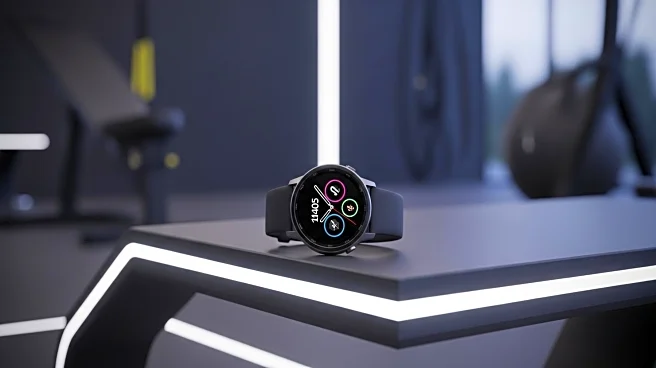What is the story about?
What's Happening?
CNET's resident fitness expert has compiled a list of nine essential fitness tech items that are indispensable for enhancing workout routines. The list includes products such as the Hyperice Normatec Go Boots, which are compact and TSA-friendly, ideal for recovery after workouts. The Apple Watch Series 11 is noted for its upgraded features, including FDA-cleared hypertension alerts and improved battery life. The Theragun Mini 2 and Theragun Pro are recommended for muscle recovery, with the latter designed for serious athletes. The Oura Ring 4 offers holistic health tracking, while the Tonal 2 smart home gym provides comprehensive strength training options. The Peloton Bike remains a top choice for its engaging community and workout classes. Lastly, the Beats Powerbeats Pro 2 earbuds are praised for their audio quality and noise-cancelling features, and the Future app offers personalized virtual training programs.
Why It's Important?
The integration of advanced fitness technology into daily routines can significantly enhance personal health and wellness. These tech items provide users with tools to monitor and improve their physical condition, offering convenience and personalized experiences. The Apple Watch Series 11's health monitoring features can alert users to potential health issues, promoting proactive health management. The Future app's virtual training capabilities cater to the growing demand for remote fitness solutions, especially in a post-pandemic world where home workouts have become more prevalent. Products like the Tonal 2 and Peloton Bike reflect the shift towards smart home gyms, providing comprehensive workout solutions without the need for traditional gym equipment. This trend towards tech-driven fitness solutions is likely to continue, influencing both consumer behavior and the fitness industry.
What's Next?
As fitness technology continues to evolve, consumers can expect further innovations that enhance the personalization and effectiveness of workout routines. Companies may focus on integrating more AI-driven features to provide real-time feedback and adjustments during workouts. The demand for remote and virtual fitness solutions is likely to grow, prompting further development in apps like Future that offer personalized training experiences. Additionally, advancements in wearable technology, such as smart rings and watches, will continue to provide users with detailed health insights, encouraging a more informed approach to personal wellness. The fitness industry may also see increased competition as new products enter the market, driving innovation and potentially lowering costs for consumers.
Beyond the Headlines
The rise of fitness technology raises questions about data privacy and the ethical use of health information. As devices collect more personal health data, companies must ensure robust security measures to protect user information. Additionally, the reliance on technology for fitness may lead to disparities in access, as not all individuals can afford high-tech solutions. This could widen the gap between those who can benefit from advanced fitness tools and those who cannot. Furthermore, the cultural shift towards tech-driven fitness may impact traditional gyms and personal trainers, requiring them to adapt to changing consumer preferences.















